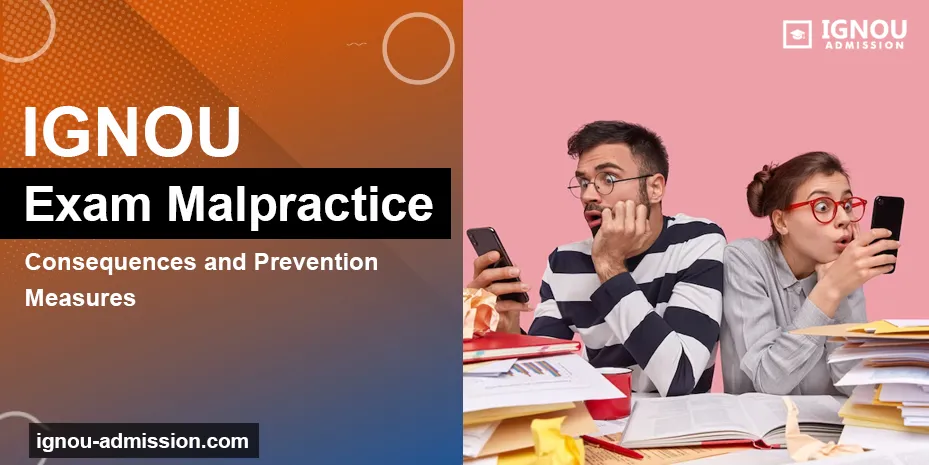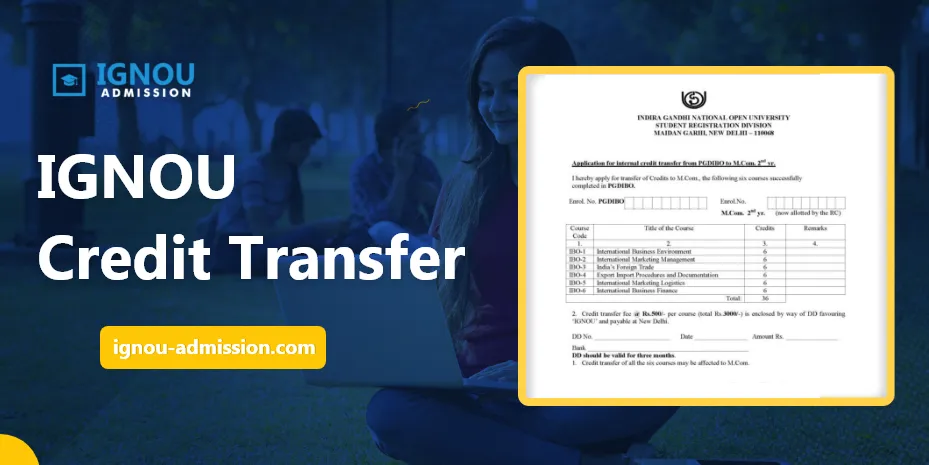IGNOU (Indira Gandhi National Open University) is one of the largest universities in the world, offering a wide range of courses to students all over India. With the number of students enrolled in IGNOU increasing every year, the university has been taking strict measures to prevent exam malpractice. Exam malpractice is a serious issue that can result in the disqualification of a student from the course, and can even lead to criminal charges. It is important for students to understand what constitutes exam malpractice and how to avoid it. In this blog post, we will discuss the different types of exam malpractice that are common in IGNOU, the consequences for those who are caught, and how to ensure that you don’t fall into the trap of malpractice. Read on to learn everything you need to know about IGNOU exam malpractice.
Contents
- 1 1. Introduction to IGNOU Exam Malpractice
- 1.1 2. What is exam malpractice?
- 1.2 3. Types of exam malpractice
- 1.3 4. The consequences of IGNOU exam malpractice
- 1.4 5. How to avoid IGNOU exam malpractice
- 1.5 6. What to do if you witness or suspect IGNOU exam malpractice
- 1.6 7. Reporting exam malpractice to IGNOU authorities
- 1.7 8. Common misconceptions about exam malpractice
- 1.8 9. The importance of maintaining academic integrity
1. Introduction to IGNOU Exam Malpractice
IGNOU, or Indira Gandhi National Open University, is one of the most renowned open universities in India. Every year, tens of thousands of students enrol in various courses offered by the university. However, with such a large number of students appearing for exams, there have been instances of malpractice during exams. IGNOU takes any form of exam malpractice very seriously and has strict rules and regulations in place to prevent and punish such actions.
Exam malpractice can take many forms, such as copying answers, attempting to cheat using electronic devices, impersonating another student, or even threatening examination officials. The consequences of being caught for exam malpractice can be severe, ranging from cancellation of student’s enrolment, to being barred from appearing in future exams, and in some cases, even legal action.
In this blog, we will discuss the various forms of IGNOU exam malpractice, its consequences, and what students should do to avoid such actions. It is important for students to understand that exam malpractice is not only unethical but can also have a detrimental effect on their academic and professional careers.
2. What is exam malpractice?
Exam malpractice is any behaviour or act that goes against the rules and regulations set by the university during an examination. It is an unethical and illegal act that is carried out in order to gain an unfair advantage over other students. Examples of exam malpractice include cheating, plagiarism, impersonation, using mobile phones or other electronic devices during the exam, and communicating with other students in the exam hall.
Exam malpractice is a serious offence and is punishable by the university. It not only affects the integrity of the examination process but also undermines the value of a degree. The university takes strict measures to prevent exam malpractice and has set up rules and regulations to ensure a fair and transparent examination process. It is the responsibility of every student to follow the rules and regulations set by the university during an examination and to avoid any behaviour that could be considered as malpractice. By doing so, you can ensure that you pass your exams with integrity and earn a degree that is truly valuable.
3. Types of exam malpractice
Exam malpractice is a serious offence and can have severe consequences for the offender. There are several types of exam malpractice that students should be aware of to avoid getting into trouble. The first type is plagiarism, which involves copying someone else’s work and presenting it as your own. This can happen in a variety of ways, such as copying from textbooks or websites, or even from other students. It’s important to always give credit where credit is due by citing sources and using your own words to convey your understanding of the material.
Another type of exam malpractice is cheating, which includes using unauthorised aids during the exam. This can be anything from using a calculator when it’s not allowed, to using notes or electronic devices to look up answers. Cheating not only violates the rules of the exam, but it also undermines the integrity of the testing process.
Impersonation is another type of exam malpractice. This involves having someone else take the exam on your behalf, or pretending to be someone else during the exam. This is a serious offence and can result in legal action being taken against the offender.
Collusion is yet another type of exam malpractice, which involves working with one or more other students to cheat on the exam. This can involve sharing answers or using other means to communicate during the exam.
Finally, there’s fabrication, which involves creating false information or documentation to support your exam performance. This could include falsifying references or creating fake certificates to enhance your academic record.
It’s important for students to be aware of these types of exam malpractice and to avoid engaging in them at all costs. Remember, cheating may seem like a quick and easy way to get ahead, but it will only lead to trouble in the long run.
4. The consequences of IGNOU exam malpractice
The consequences of IGNOU exam malpractice can be severe. If a student is caught engaging in exam malpractice, they may face disqualification from the examination, cancellation of their exam results, and even suspension or expulsion from the university. These consequences can have a long-lasting impact on the student’s academic and professional future. In addition to the direct consequences, exam malpractice can also damage the reputation of the university and its students. It is important for students to understand that exam malpractice is a serious offence and can have far-reaching consequences. It is always better to prepare well for the exam and to rely on one’s own abilities rather than resorting to unethical practices. The university takes a zero-tolerance approach to exam malpractice and has put in place stringent measures to prevent and detect such practices. Students should be aware of these measures and should refrain from engaging in any form of malpractice to avoid facing the consequences.
5. How to avoid IGNOU exam malpractice
It is important to avoid any kind of malpractice during IGNOU exams as it can have serious consequences including disqualification from the exam or even the entire program. Here are some tips to avoid exam malpractice:
- Follow the exam rules: Make sure you read and understand the exam rules and regulations before appearing for the exam. This will help you avoid any unintentional malpractice.
- Don’t cheat: Cheating during the exam is strictly prohibited and can lead to disqualification. Avoid taking any kind of material or notes inside the examination hall.
- Manage your time: Proper time management during the exam is crucial. Do not waste time or spend too much time on one question.
- Don’t communicate with others: Talking or communicating with other students during the exam is not allowed. This can be considered as a form of malpractice and can lead to disqualification.
- Be careful while submitting the answer sheet: Ensure that you properly fill in all necessary details in the answer sheet and submit it before leaving the exam hall. Any kind of misconduct during the submission process can also lead to disqualification.
By following these simple tips, you can avoid malpractice during IGNOU exams and ensure that you have a fair and successful examination experience.
6. What to do if you witness or suspect IGNOU exam malpractice
If you witness or suspect IGNOU exam malpractice, it is your duty to report it immediately. You can report it to the exam invigilator or the exam centre supervisor. They will take appropriate action to investigate the matter. It is important to report any malpractice as soon as possible as any delay can lead to the loss of important evidence.
You can also report the malpractice to the IGNOU regional centre or the head office. You can do this by sending an email or a letter explaining the incident in detail. It is important to include any evidence you may have, such as photos or videos, as this will help with the investigation.
If you are a student who has been asked to participate in malpractice, it is important to say no and report the incident. If you are found guilty of malpractice, you may face serious consequences, such as being banned from taking future IGNOU exams or having your current exam results cancelled.
Remember, exam malpractice is a serious offence and can have serious consequences. It is important to maintain the integrity of the exam system and report any incidents of malpractice that you witness or suspect.
If you come across any malpractice during your IGNOU exams, it’s important to report it to the authorities as soon as possible. This not only helps to maintain the integrity of the examination system but also ensures that everyone is given a fair chance.
To report any malpractice, you can reach out to the IGNOU authorities through various channels such as email, phone, or in-person. You can also report malpractice anonymously if you wish to remain unidentified.
When reporting malpractice, make sure to provide as much information as possible such as the details of the incident, the names of the individuals involved, and any evidence that you may have. This could include photographs, screenshots, or any other relevant documents.
It’s important to note that making false accusations and reporting malpractice without evidence can have serious consequences. Therefore, it’s crucial to be sure of the information you are providing before making a report.
By reporting any malpractice, you are not only helping to maintain the integrity of the examination system but also ensuring that all students are given a fair chance to succeed.
8. Common misconceptions about exam malpractice
Exam malpractice is a serious issue and can result in severe consequences for the student involved. However, there are several common misconceptions about exam malpractice that need to be addressed.
One of the most common misconceptions is the belief that exam malpractice only involves cheating or copying during an exam. While these are certainly examples of exam malpractice, there are many other actions that can also be considered malpractice, such as impersonation, plagiarism, and even the use of unauthorised electronic devices during an exam.
Another misconception is that only students are responsible for exam malpractice. In reality, both students and educational institutions can be held accountable for malpractice. For example, if an institution fails to properly monitor an exam or provide adequate security measures, they may also be held responsible for any malpractice that takes place.
It is also important to note that exam malpractice is not a victimless crime. When a student cheats or engages in other forms of malpractice, they are not only compromising their own academic integrity but also the integrity of the educational system as a whole. Additionally, their actions can have negative consequences for other students who may have worked hard to earn their grades honestly.
9. The importance of maintaining academic integrity
Maintaining academic integrity is crucial for both the students and the institutions they attend. Academic integrity represents the values and principles of honesty, fairness, and respect in academic activities such as writing essays, assignments, and taking exams.
When students engage in academic misconduct, they are violating the principles of academic integrity, which can lead to severe consequences. Institutions take academic integrity very seriously and have policies and procedures in place to deal with such situations.
Participating in academic misconduct, such as cheating on exams, not only affects the student’s academic performance but also undermines the credibility of the institution and its degrees. In a competitive job market, employers are looking for individuals who have demonstrated academic excellence and personal integrity.
Therefore, maintaining academic integrity is essential for students to develop the skills and knowledge they need to succeed in their chosen professions. It also ensures that they earn their degrees and diplomas with credibility and integrity.
10. Conclusion
In conclusion, as an IGNOU student, it is important to understand the severity of exam malpractice and its consequences. Not only does it jeopardise your academic career, but it also undermines the credibility of the university.
It is crucial to prepare well for exams and to avoid any unethical practices such as cheating or plagiarism. If you are caught engaging in malpractice, the consequences can be severe, ranging from being barred from taking exams to being expelled from the university.
Wishing you all the best for your IGNOU exams and future endeavours!




